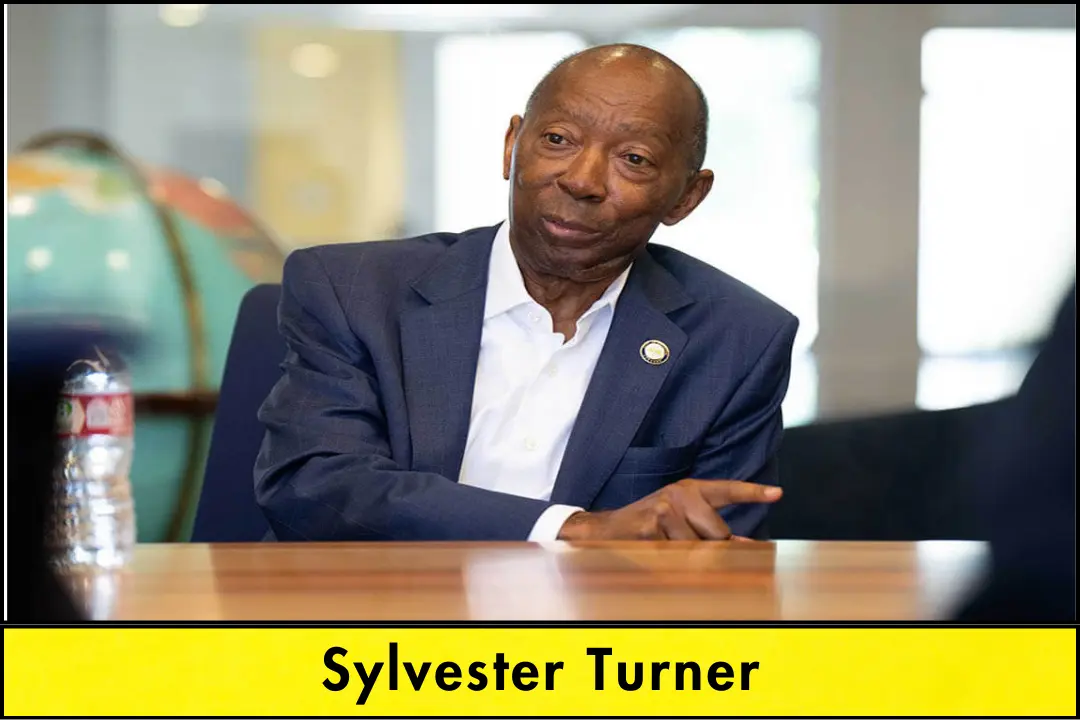Introduction
Sylvester Turner is a name synonymous with resilience, leadership, and dedication to public service. As the 62nd mayor of Houston, he played a pivotal role in shaping the city’s economic growth, disaster management, and infrastructural development. His tenure was marked by unwavering commitment to addressing pressing social issues while fostering unity among the city’s diverse population.
From his humble beginnings to leading one of the largest cities in the United States, Turner’s political journey is an inspiring tale of perseverance and service. His efforts in managing Hurricane Harvey, advancing economic policies, and improving public services have left a lasting impact. This article delves into his life, political career, and contributions to Houston’s transformation.
Early Life and Education
Born on September 27, 1954, in Houston, Texas, Sylvester Turner grew up in the Acres Homes neighborhood, a historically African American community. His upbringing in a modest household instilled in him the values of hard work and determination. Despite financial struggles, Turner excelled academically and secured a scholarship to the University of Houston, where he earned a degree in political science.
Turner later attended Harvard Law School, one of the most prestigious institutions in the world, where he honed his legal expertise. His education provided a strong foundation for his future political career, equipping him with the knowledge and skills necessary for leadership.
Legal and Early Political Career
Before stepping into the political limelight, Turner built a successful legal career. He co-founded the law firm Barnes & Turner, where he specialized in civil litigation. His legal expertise and passion for justice gained him recognition, leading to his election to the Texas House of Representatives in 1988.
As a state representative, Turner served for over 25 years, championing policies related to education, healthcare, and economic development. His ability to work across party lines and advocate for the underprivileged earned him widespread respect. Turner’s tenure in the Texas Legislature was instrumental in shaping his leadership philosophy and preparing him for his future role as Houston’s mayor.
Becoming Houston’s Mayor
After two previous attempts at the mayoral seat, Turner’s persistence paid off when he was elected as the mayor of Houston in 2015. His victory marked the beginning of a transformative era for the city. His administration focused on addressing infrastructure challenges, improving public safety, and enhancing economic opportunities for all residents.
One of the significant challenges Turner faced early in his tenure was Hurricane Harvey, a catastrophic storm that devastated Houston in 2017. His leadership during the crisis was widely praised, as he worked tirelessly to coordinate rescue efforts, provide relief to affected communities, and spearhead recovery initiatives. His swift response demonstrated his ability to handle adversity and make crucial decisions under pressure.
Key Achievements as Mayor
Turner’s tenure saw numerous accomplishments that significantly impacted Houston’s growth and resilience. His dedication to public service extended across various sectors, making notable improvements in infrastructure, economy, and social welfare.
Hurricane Harvey Response and Recovery
In 2017, Hurricane Harvey brought unprecedented flooding to Houston, displacing thousands of residents. Turner played a critical role in leading the city’s response efforts. His administration secured federal aid, coordinated with emergency services, and initiated long-term recovery projects to rebuild affected neighborhoods. His leadership during this crisis earned him national recognition as a steady and compassionate leader.
Economic Growth and Job Creation
Under Turner’s leadership, Houston witnessed economic expansion and job growth. He actively promoted investments in technology, energy, and small businesses, fostering an environment conducive to entrepreneurship. Turner also worked to bridge economic disparities by implementing workforce development programs that provided training and employment opportunities to underserved communities.
Infrastructure and Transportation Improvements
Turner prioritized improving Houston’s aging infrastructure. His administration launched initiatives to repair roads, upgrade drainage systems, and modernize public transportation. Projects like the Houston Complete Communities initiative aimed to enhance quality of life by addressing disparities in different neighborhoods and ensuring equitable development.
Homelessness Reduction Efforts
A significant achievement of Turner’s tenure was his proactive approach to tackling homelessness. Through partnerships with nonprofit organizations and government agencies, his administration introduced the “Way Home” program, which successfully reduced homelessness by providing housing assistance and social services. His commitment to addressing this issue reflected his dedication to social justice and community welfare.
Climate Action and Environmental Policies
Recognizing the need for sustainable development, Turner launched the Houston Climate Action Plan. This initiative aimed to reduce greenhouse gas emissions, promote renewable energy, and enhance urban sustainability. His efforts positioned Houston as a leading city in climate resilience and environmental responsibility.
Challenges and Criticism
Like any leader, Turner faced challenges and criticism during his tenure. Some critics pointed to budget constraints, pension reforms, and concerns over property tax policies. However, his ability to navigate complex political landscapes and make difficult decisions underscored his leadership strengths. Despite these challenges, Turner remained focused on his vision for a stronger, more inclusive Houston.
Legacy and Impact
Turner’s legacy as Houston’s mayor is defined by his resilience, commitment to public service, and ability to unite diverse communities. His leadership in crisis management, economic development, and social welfare has left an indelible mark on the city. Even after leaving office, his influence continues to shape Houston’s future, inspiring upcoming leaders to prioritize community-driven policies and inclusive governance.
FAQs
- What was Sylvester Turner’s biggest achievement as Houston’s mayor? Turner’s biggest achievement was his leadership during Hurricane Harvey and the city’s recovery efforts. His response to the disaster showcased his ability to handle crises effectively and rebuild communities.
- How did Sylvester Turner contribute to economic growth in Houston? Turner promoted economic growth by attracting investments, supporting small businesses, and implementing workforce development programs that created job opportunities for residents.
- What steps did Turner take to address homelessness in Houston? His administration launched the “Way Home” initiative, which provided housing and support services to homeless individuals, significantly reducing homelessness in the city.
- How did Turner handle environmental challenges in Houston? He introduced the Houston Climate Action Plan, focusing on sustainability, emission reductions, and urban resilience to combat climate change.
- What were some challenges Turner faced as mayor? Turner faced challenges such as budget constraints, pension reform controversies, and balancing property tax policies. Despite these hurdles, he remained committed to advancing Houston’s development.
Conclusion
Sylvester Turner’s tenure as Houston’s mayor was marked by resilience, strategic policymaking, and a deep commitment to the city’s welfare. From managing crises like Hurricane Harvey to fostering economic and social progress, he proved to be a visionary leader dedicated to serving his community.
His leadership legacy will continue to inspire future generations, reinforcing the importance of perseverance, inclusivity, and proactive governance. As Houston moves forward, Turner’s contributions will remain a vital part of the city’s history, shaping its growth and resilience for years to come.






